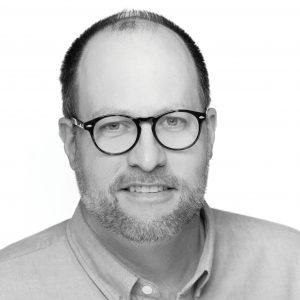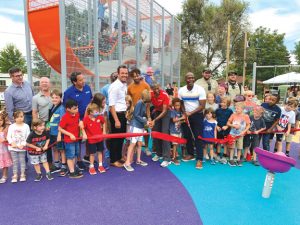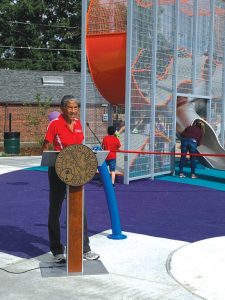OPINION: Don’t Be Fooled Again
Fairfax Park Land Swap A Prelude To More Developer/City Insider Dealings At The Park Hill Golf Course
By Kevin Wiegand
For the GPHN
A cautionary tale!

The one thing I am confident of is the residents of Park Hill want what is best for all of our neighbors, especially when it comes to the future of the Park Hill Golf Course. Our future is in the hands of the City government and its planners, who have a history of ignoring the needs and desires of the residents and giving full support to developers.
The public/private partnership between Westside Investment Partners and Denver’s mayor and city council — which is pushing to develop the golf course land — is a deja vu of what we watched play out at the just-opened Fairfax Park.
That public/private partnership — a park in the middle of a commercial development on the east side of 29th and Fairfax — was a marriage between the city and a different developer, HM Capital. It started with a piece of land, on the west side of Fairfax, which the city obtained and designated a future park. What has transpired has been detailed in many news stories in these pages over the past several years.
HM Capital, the developer of Park Hill Commons, made a proposal to swap the land for an “equal’ parcel of land on his side of the street. In exchange, the developer said he would build and pay for the park in the middle of his project. The plan was backed by Councilman Chris Herndon and the Parks and Recreation department.
A majority of nearby residents had an issue with the land swap. They felt the proposed “park” would mainly benefit HM Capital and its new commercial development — and not be a park for the neighborhood. They wanted the park to be built in the original location. The director of Parks and Rec, Happy Haynes, and her deputy director, Scott Gilmore, said the department had no money to build the park. The only way it could be built, they said, was to do the land swap and have the developer pay for it.
Neighbors, working through the Greater Park Hill Community Registered Neighborhood Organization, pledged to raise the money to build the park in the original location. But the city refused to listen to the community. Herndon, along with Gilmore and Haynes, pushed hard to make sure the land swap occurred. They used tax dollars to conduct a series of meetings in the neighborhood, pushing the agenda of the developer. When the final negotiations were said and done, HM Capital paid $650,000, and us taxpayers are on the hook for the rest. The price tag has come to at least $1.2 million.
In other words, what was supposed to be a “free” park has turned into a project costing taxpayers at least $550,000.
Now let’s consider the Park Hill Golf Course, a 155-acre property in northeast Park Hill. In the 1990s former Denver Mayor Wellington Webb wisely invested $2 million of our tax dollars on a conservation easement, to ensure the land was forever preserved as open space. The group Yes for Parks and Open Space is sponsoring Initiative No. 301, on the November ballot, to protect that conservation easement.
Meanwhile, another developer, Westside Investment Partners, along with Mayor Hancock and friendly city council members, want you to vote for their initiative — No. 302 — that would remove the protections on the golf course land and open it up for development.
Please realize the insider dealings over the golf course property is just Fairfax Park times 387 (based on land area). You can’t trust public/private partnerships, not with Denver’s current elected officials. The developers can’t be blamed, because their motivation is profit. The blame rests with our elected leaders and city planners, who consistently choose to support developers over the citizens.
City Planner Laura Aldrete has referred to Westside Investment Partners as the city’s “client,” so how do we expect her to drive a hard bargain? The city is now pushing development of the land, instead of supporting the perpetual conservation easement owned by the city that protects the land from development.
No matter what promises are being made now for the future of the golf course land — a grocery story, affordable housing, etc. — most will not be honored. If the developer gets his way, what will be built will not in any way resemble the promises made. What will happen is further gentrification of the neighborhood, with existing residents being pushed out.
If you don’t want the Park Hill Golf Course land to become a development for the wealthy that will further push out our neighbors, vote YES on 301 and NO on 302.
Kevin Wiegand is an affordable housing architect and consultant. He represents District 4 on the board of Greater Park Hill Community, Inc.



